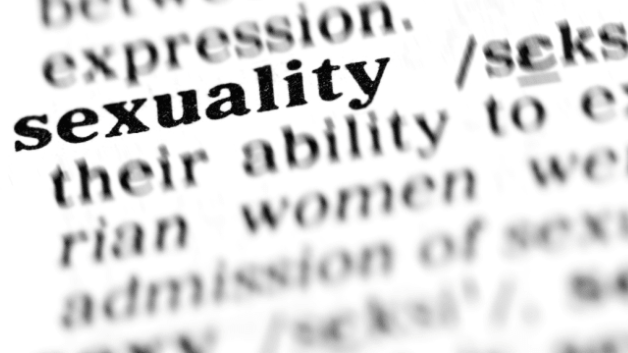By Shaykh Yūsuf Badāt
Sexual assault and abuse is real. Unfortunately, it exists everywhere in all communities. The Muslim community is no different. Often times, we collectively shy away to talk and address real issues affecting our communities.
I studied Islamic theology at three world renowned Islamic [all boys] boarding seminaries, in three different countries. These are institutions that train imams and religious scholars. I immensely benefited with the high level advanced education. However, truth be told, I recall hearing chatter amongst students regarding sex, homosexuality and sexual abuse. Some of these topics were used to belittle or mock others, while at times, they were about preying on minors. At two of the three seminaries, some students were expelled for sexually abusing others and or getting involved with illegal homosexual acts.
I am sure you have heard of a case or two, related to Qur‘ān and Islamic studies teachers and or administrators entangled in sexual scandals. It would be naive to say that sexual abuse, homosexuality and sex scandals only occur in non-muslim communities and organizations. For this reason, we must address the issues and engage in both awareness and positive action.
Appropriate Sex-Talk and Education Does Not Defy Islamic Modesty
Awareness is achieved by communication and education. Awareness is the foundation for transformation. If we as a Muslim community continue to shove things under the rug, ignore and or cover up such difficult topics and or incidents, we would be doing injustice to the true spirit of the pristine religion.
We must talk and create the awareness. This will lead to practically addressing the issues.
“Allāh is not embarrassed about the truth.” (Qur‘ān 33:53)
When God Almighty addresses three major Islamic pillars, namely, ritual prayer, fasting and pilgrimage, He talks about the sex topic.
Basic jurisprudence commences with the subject of ṭahārah (ritual purity) which discusses topics regarding body parts, private organs, ejaculation, semen and menses.
Many Muslims are under the notion that talking about sexuality [in a decent manner] is against the rules of Islamic morality and modesty. I was once rudely reprimanded by an elderly man at the mosque for explaining a Qur‘ānic verse addressing sexuality, at a study circle.
The issue is not the topic [of sex and sexuality] itself, rather the approach that is taken. Islamic guidelines do not prohibit sex-education. It prohibits promiscuity and loose speech that would encourage illicit sex and or invite to participate in illegal sexual activities. Islam is also sensitive to gender roles. Details of sexuality be taught to girls by women while men would be the best teachers for boys, within a sound framework.
Sex Education
The Prophet Muḥammad (peace and blessings upon him) taught sex-education. There are well known ḥadīths regarding removal of pubic hair, separating children’s beds at appropriate ages, respecting privacy of space, seeking consent, advices related to private body parts, pre and post marital sex, marriage, sex positions and menses to name a few.
Sex education must be taught to our children and youth. Youth are exposed to all kinds of secular and sexual topics, content and discussions through various avenues. Cartoons, movies, advertisements, social media, video games and friends are just a few examples. We cannot live in isolation and or in bubbles. It is of vital importance to equip children to understand these topics from an Islamic perspective. Age appropriate discussions alongside Islamic values. Parents play a huge role in this. Parents should learn techniques and ways to openly and respectfully engage on this topic as well. The sex education we impart to our children must entail the topic of sexual assault, related safety, the good and bad touch etc.
If you really care for your children, their questions and views should not be shunned nor belittled. Parents and guardians should take this as an opportunity to educate and equip their children with the correct understanding to face the real world out there.
Sexual Abuse: Qur‘ān Teachers, Preachers and Imams
It is immensely shocking and heart breaking when a perpetrator of sexual abuse is [supposedly] a religious authority or figure. Someone who is seen or looked upon as pious.
Reality check, Qur‘ān teachers, preachers and imams are also humans. Humans are all susceptible to carnal desires, temptations and sin.
The Prophet of Islam, Muḥammad (peace and blessings upon him) said, “Verily, Satan flows through the human being like blood.” (Muslim)
No one is immune to the devil. If one does not keep oneself constantly in check, disciplined and within moral principles, then one can easily fall prey. It takes a simple whisper from the devil and or negative temptation to slip.
One must also understand, there can be many triggers and social factors that lead a perpetrator to commit such immorality and indecency. Humans are difficult beings.
In such situation, your shock and disgust is with the human evil, not with the Qur‘ān or religion.
Your love, attachment and connection with the Qur‘ān remains vibrant and positive, however, your trust and vigilance with the human is now different, even if he or she is an imam or a Qur‘ān teacher.
‘Abd Allāh ibn Mas‘ūd (may Allāh be pleased with him) said, “Whoever wants to follow a path, let him follow the path of one who has died, for the living are not safe from deviation [danger, temptation or corruption].” (Ibn ‘Abd Al Barr)
Policy and Professionalism
All institutions and organizations, including mosques and Islamic schools must have proper legally acceptable policy and protocol in place. Teachers and administrators must be professionally trained. Criminal background checks for all staff should be up to date. Teaching, counselling and meetings should only occur during specified business hours and in designated professional spaces, classrooms and or offices. There should be detailed legal policy and procedure at institutions to tactically act when a critical incident occurs, to address, investigate and report cases.
All individuals and staff should always act and interact professionally. Do not ever put your yourself in a position or a place where one can easily fall prey to a sinful temptation or be accused of sexual harassment or abuse.
The Prophet (peace and blessings upon him) warned about such situations by saying,
“The third in your [impermissible] seclusion with another is the devil.” (Tirmidhī)
The following advice, with variation in wordings, has been attributed to the great, ‘Omar bin Khaṭṭāb (may Allāh be pleased with him),
“Abstain from places [or situations] where one could easily be accused.” (Makārim al Akhlāq)
Allegations, Investigations and Convictions; Our Duty
There is no suspicious or reported incident that should be taken lightly. Every available resource should be applied and employed to support victims. Do what it takes to provide healing, therapy, professional counselling and support. All accused must face the law to its full extent. Convicted perpetrators must be taken to task and punished. That being said, it is equally important to remind ourselves, the letter of the law remains, that everyone is innocent until proven guilty.
During the dreadful wait of criminal investigations, do not assist the devil in his work, by spreading rumours, engaging in slander or vulgarity. Take the time to further educate and talk to students, staff, parents and administrators. Work to reinforce legal policy and procedure at institutions. Facilitate counselling, therapy and training to all stakeholders. Work to provide and strengthen solutions rather than to intensify the problems.
The Prophet of Islam, Muḥammad (peace and blessings upon him) said,
“Support your brother [or sister] whether he [or she] is an oppressor or is being oppressed.” It was said, “O Messenger of God, we help the one being oppressed but how do we help an oppressor?” The Prophet said, “By restraining him [or her] or preventing him [or her] from committing injustice, for that is how you support him [or her].” (Bukhārī and Muslim)
“The burden of proof is upon the plaintiff, and the oath is upon the one who is accused.” (Tirmidhī)
“If I were going to punish anyone without proof, I would have punished her [However due to the absence of proof, I did not punish her].” (Ṣaḥīḥ Muslim)
“And do not insult one another and do not call each other by [offensive] nicknames. Wretched is the name of disobedience after [one’s] faith. And whoever does not repent – then it is those who are the wrongdoers.” (Qur‘ān 49:11)
“…and indeed, assumption avails not against the truth at all.” (Qur‘ān 53:28)
The Way Forward
Know that we are all tested and put in trials in various ways. The tests of the Almighty are never something beyond what we could bear.
“Verily, We shall put you to test.” (Qur‘ān 2:155)
“Allāh does not charge a soul beyond it’s capacity” (Qur‘ān 2:286)
Cases of sexual harassment and abuse are the last thing we want to hear about, especially when it involves the vulnerable. Patience, calmness, strategic actions, professionalism and prayers will be required.
Islam teaches us to never lose hope.
We will forever battle the negatives of humans, regardless if these humans are Qur‘ān teachers, movie producers, media moguls or politicians.
Learn, be stronger and more vigilant through the damaging incidents and adversities. However, never lose hope for a better tomorrow. Positivity and goodness still remains out there. Let us all work together by doing our part to keep sexuality positive within our values and also a great God-given blessing.




